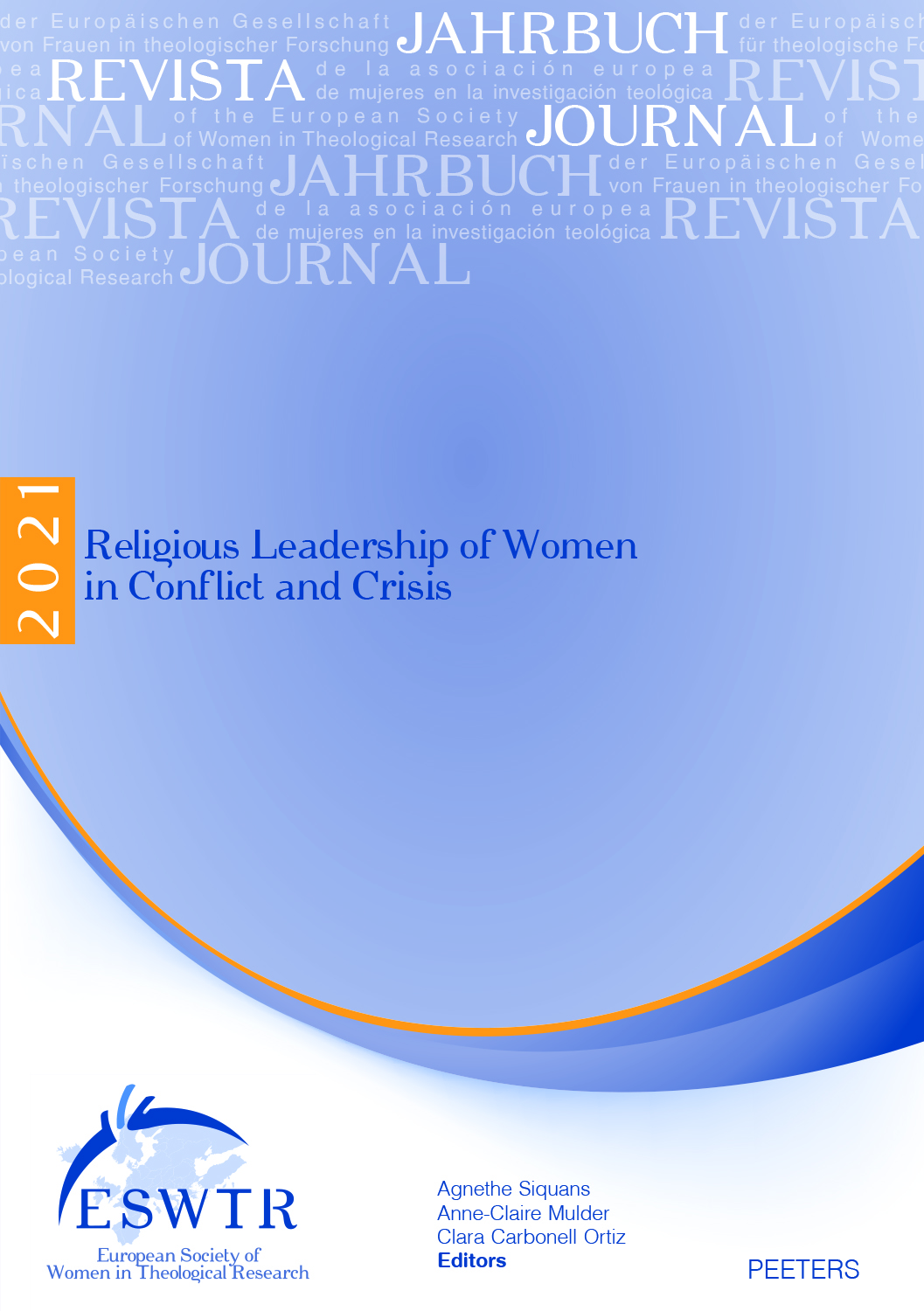 previous article in this issue previous article in this issue | next article in this issue  |

Preview first page |
Document Details : Title: Theology after Trauma Subtitle: Towards a Trauma-Sensitive, Carnal Theology Author(s): HANSEN-COUTURIER, Marie Journal: Journal of the European Society of Women in Theological Research Volume: 32 Date: 2024 Pages: 211-230 DOI: 10.2143/ESWTR.32.0.3293707 Abstract : Questions of suffering and grief are not new to theology. This, however, does not mean that theology has always responded to these questions in a trauma-sensitive way. In this paper, I explore what a trauma-sensitive theology may look like. Trauma concerns both our bodies and our minds: trauma is a holistic shattering of what was, what is, and what is yet to be. Trauma questions what we fundamentally believe about God and the world, for example: God is good, the world is a safe place. Trauma is prevalent: both in the Bible and in everyday life. A trauma-sensitive theology, then, is a theology that centralises the body and puts the perspective of those suffering from trauma to the fore. It is a theology committed to prioritising bodily experience that upholds a robust faith in human resilience. Looking at field notes and a drawing from participant observation in a course centred on the relationship with God after sexual abuse, we see that the story of Thomas and Jesus (John 20:19-29) can speak to survivors of trauma on a corporeal level. What can be seen when looking at the field notes is how flesh and the senses can be included in doing theology in a trauma-sensitive way. This requires an approach that goes beyond language/text alone. Fragen des Leidens und der Trauer sind für die Theologie nicht neu. Das bedeutet jedoch nicht, dass die Theologie schon immer auf diese Fragen in einer traumasensiblen Weise reagiert hat. In diesem Beitrag möchte ich untersuchen, wie eine traumasensible Theologie aussehen könnte. Trauma betrifft sowohl unseren Körper als auch unseren Geist: Trauma ist eine ganzheitliche Erschütterung dessen, was war, was ist und was noch sein wird. Ein Trauma stellt in Frage, was wir grundsätzlich über Gott und die Welt glauben, zum Beispiel: Gott ist gut, die Welt ist ein sicherer Ort. Trauma ist allgegenwärtig: sowohl in der Bibel als auch im täglichen Leben. Eine traumasensible Theologie ist also eine Theologie, die den Körper in den Mittelpunkt stellt und die Perspektive derjenigen in den Vordergrund rückt, die unter einem Trauma leiden. Es ist eine Theologie, die sich verpflichtet, der Körpererfahrung Vorrang einzuräumen, und die einen robusten Glauben an die menschliche Widerstandskraft aufrechterhält. Anhand von Feldnotizen und einer Zeichnung aus der teilnehmenden Beobachtung in einem Kurs, der sich auf die Beziehung zu Gott nach sexuellem Missbrauch konzentrierte, zeigt sich, dass die Geschichte von Thomas und Jesus (Johannes 20,19-29) Überlebende von Traumata auf einer körperlichen Ebene ansprechen kann. Bei der Betrachtung der Feldnotizen wird deutlich, wie das Fleisch und die Sinne in eine traumasensible Theologie einbezogen werden können. Dies erfordert einen Ansatz, der über Sprache/Text allein hinausgeht. La pregunta por el sufrimiento y el duelo no es nueva en teología. Esto, sin embargo, no significa que se le haya dado respuesta teniendo en cuenta la experiencia del trauma. En este artículo, exploro qué forma tendría una teología sensible al trauma. El trauma tiene impacto tanto en nuestros cuerpos como en nuestras mentes: es una fractura holística de lo que fue, lo que es y lo que será. También pone en tela de juicio nuestras creencias fundamentales sobre Dios y el mundo, por ejemplo, que Dios os bueno o que el mundo es un lugar seguro. El trauma es además prevalente, tanto en la Biblia como en la vida cotidiana. Así pues, una teología sensible al trauma se centra en el cuerpo y privilegia la perspectiva de quienes lo sufren. También está comprometida con la prioridad de la experiencia corporal, por lo que afirma una fe robusta en la resiliencia humana. Partiendo de notas de campo y un dibujo derivado de la observación participante en un curso centrado en la relación con Dios después del abuso sexual, se afirma que la historia de Tomás y Jesús (Juan 20,19-29) puede hablar a los supervivientes de un trauma a nivel corporal. Las notas de campo apuntan a cómo tanto la carne como los sentidos pueden usarse a la hora de practicar una teología sensible al trauma. Esto demanda un tratamiento que vaya más allá del lenguaje o el texto. |
 |


